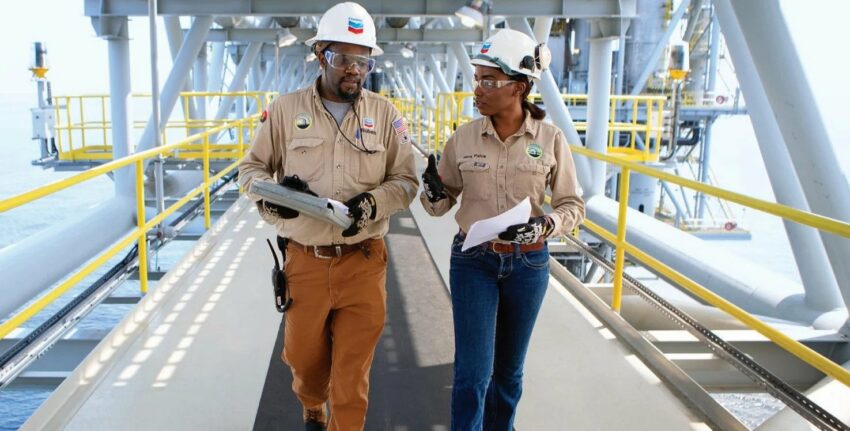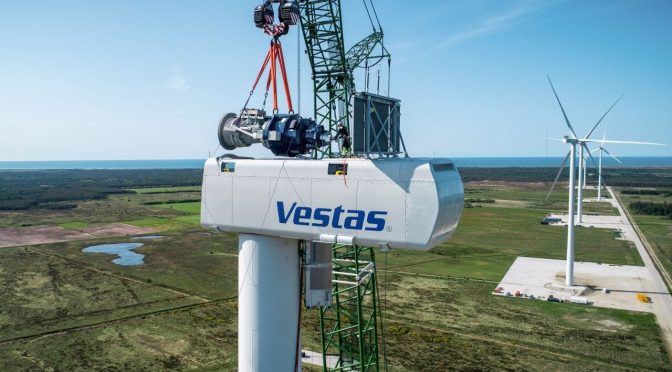
By joining the GCMD, Chevron aims to support the development of potentially scalable lower-carbon technologies, including those that enable the use of ammonia as a maritime fuel, and the commercial means to enable their adoption.
The decision to join the centre comes at the time of Singapore Maritime Week (SMW) taking place from 4 to 8 April.
In an ongoing energy transition sweeping across the sector, Chevron launched Chevron New Energies (CNE) in 2021 to accelerate lower carbon businesses in hydrogen, carbon capture, utilization and storage, offsets, and emerging energy opportunities, as well as support its focus on renewable fuels and products.
“Lowering the carbon intensity of shipping requires fundamental changes across the entire maritime value chain”, said Mark Ross, president of Chevron Shipping Company. “This is a truly complex task that requires industry-wide collaboration, innovation, and well-designed policy. GCMD brings together knowledge and expertise to help meet this challenge. We look forward to working with our fellow partners to progress our shared lower carbon ambitions.”
Commenting on the partnership, Lynn Loo, CEO of the GCMD, said: “Shipping is a hard-to-abate sector and to reach the International Maritime Organization’s climate goals, collaboration across the value chain is required. We look forward to working with Chevron and capitalizing on its experience as a fuel producer, supplier and end-user to operationalize pilots, which we believe will ultimately shorten the time to deployment and adoption of decarbonization solutions.
“This partnership will enable both organizations to work closely on the fuels of the future as well as carbon capture technologies, both of which are critical enablers expected to help the sector meet its net-zero ambitions.”
Global Centre for Maritime Decarbonisation signs on new partners
In a separate statement, the GCMD informed that the International Chamber of Shipping (ICS) and the Boston Consulting Group (BCG) also joined the centre.
The partnerships, in addition to those with Chevron and the UK-based oil and gas major BP, were also signed during the SMW.
According to the centre, through the ICS, GCMD aims to leverage its maritime membership base for inputs on regulatory and operational hurdles and share learnings from its decarbonisation projects.
As for the BCG, the centre expects it to bring insights on macro trends in decarbonisation to help frame the GCMD’s efforts.
Guy Platten, Secretary-General of the ICS commented: “We are delighted to partner with GCMD to seek solutions to the decarbonisation challenge that faces our industry. We are going to need an all-of-the-above approach to deliver the fourth propulsion revolution for the maritime sector. Having GCMD partnering with us, along with a key group of stakeholders, will help advance our efforts to increase technology readiness levels to ensure that we can deliver a sustainable and equitable future for the maritime sector.”
Neeraj Aggarwal, Chairman of BCG Asia-Pacific, added that the partnership aligns closely with BCG’s commitment to building a rich ecosystem of partnerships and collaborations in the journey towards advancing sustainability, in line with the recent launch of our Climate and Sustainability Hub for Innovation in Asia.
Lynn Loo welcomed the new partners: “GCMD believes in taking a well-to-wake approach when it comes to fostering collaboration through partnerships, which is integral to taking on the grand challenge and untangling the complexities of decarbonising shipping. The four partners that we have signed on this week – bp, Boston Consulting Group, Chevron and the International Chamber of Shipping – will bring complementary perspectives that are critical to decarbonising the sector.
“Together our new partners bring a combined S$25M cash and in-kind contributions as well as their core competencies, technologies and relationships towards our common goal to deploy low-/zero-carbon solutions cheaper, cleaner, and faster.”







